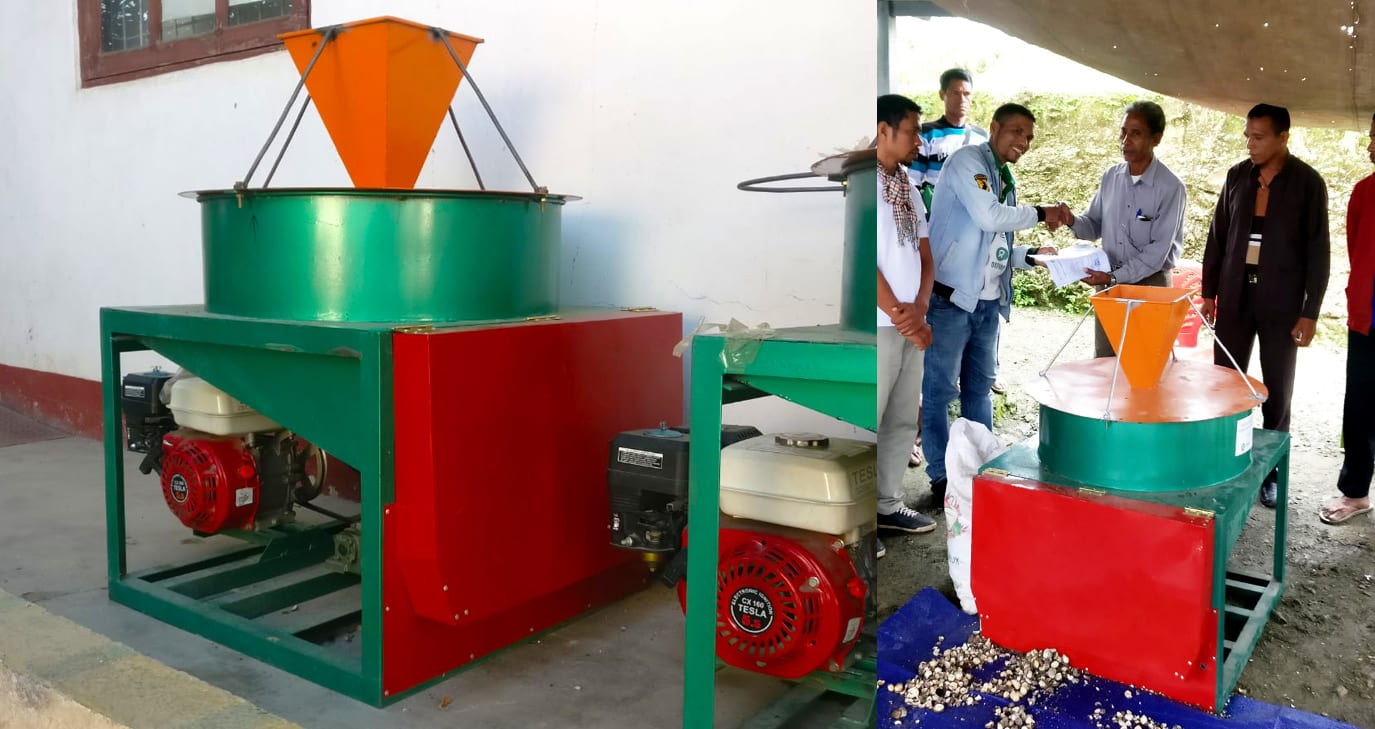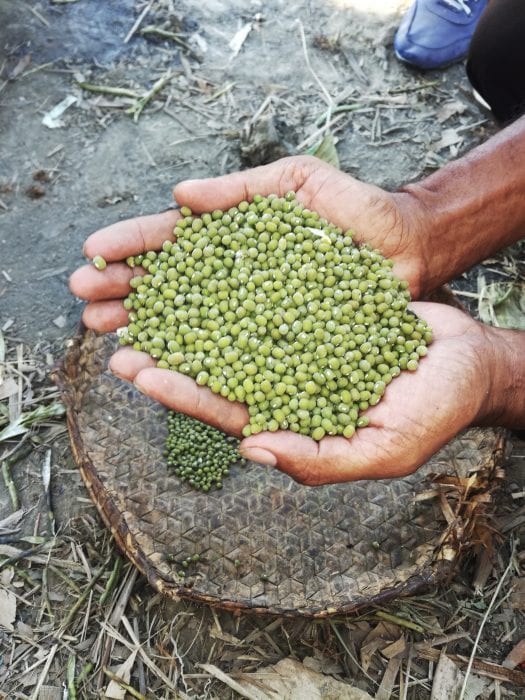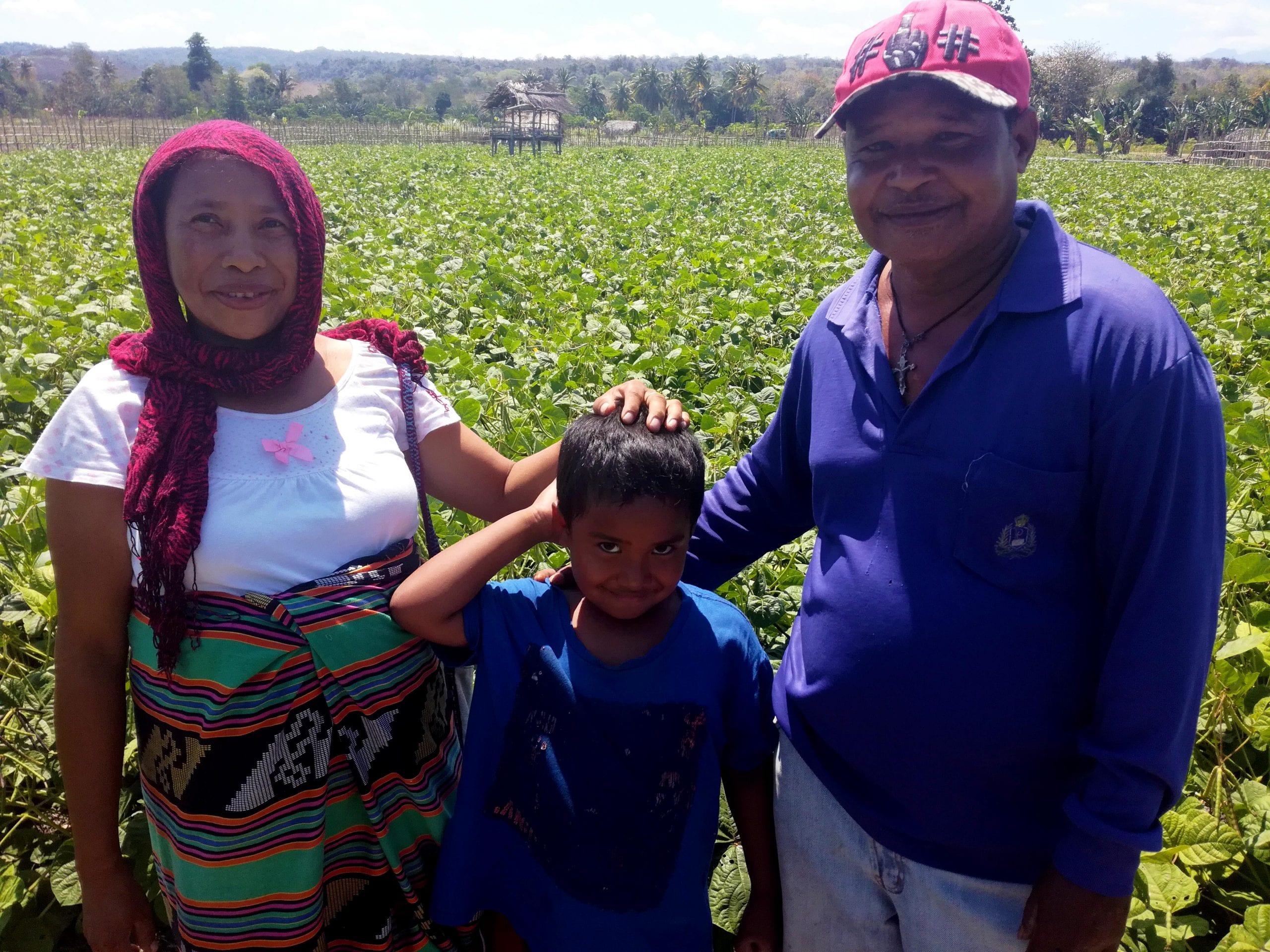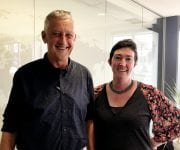A Kiwi sharing skills in Timor-Leste
Lou Bird, a Kiwi ex-farmer and a Volunteer Service Abroad (VSA) volunteer, is working together with Timorese farmers and their families to improve nutrition, yields and income generation.
Oxfam’s project in Timor-Leste focuses on supporting Timorese farmers to become self-reliant and to thrive. Working through local partners, Oxfam delivers tools, training and advice so they can boost their income and secure a steady supply of food.
“My role is working with the local NGOs that deliver the project at the grassroots level. That suits me down to the ground, because it’s hands on and I’m interacting with farmers,” says Lou.
“There’s something about farmers worldwide that whenever farmers get together, they always have something talk about – climate, soils, pests, nature…”

One of the initiatives Lou has helped deliver alongside Oxfam involves a new candlenut shelling machine, which saves women the laborious task of cracking the nuts one by one.
“Deshelling candlenuts is hugely time consuming. It’s typically women’s work. A sack of candlenuts in the shell would typically take one person a day and a half to shell. One by one, on a rock,” he says.
“One and a half day’s work for one person can now be completed in 10 minutes. The women are thrilled. It’s a radical transformation and potential for that crop.”

Lou has also used his expertise to help farmers grow nutritious crops that can be easily stored and eaten during the low season: “We’ve been promoting the growth of dry bean species – mung beans, soy beans, red beans – and peanuts, onion species, shallots, that in the right conditions can be stored for a very long time.”

These new crops help tide families over through the hungry months, when cassava – a filling but nutrient-poor staple – would usually be the primary component of their diet.
“When people have got good nutrition and adequate food and things, then you’re stronger and you can accept more challenges.”
Decades of experience as a farmer in New Zealand has given Lou a special insight into the many challenges of small-scale agriculture, but also how rewarding it can be.

“One of the big things I have in common [with local farmers] is understanding cycles… understanding risk from a farmer’s perspective, because the buck stops at the farmer. Farmers are at the very bottom of every value chain within the food complex.
“The other element is that I recognise the ability of the farmers. They are good farmers. They have been successfully growing food crops for hundreds, thousands of years – I don’t know how long.
“And it’s really satisfying for me to be able to turn to these farmers, and say to them, ‘Well, you know how to grow food. You’re good farmers. So where is it you want me to give you some support and help, and we can talk about things?’”
The impact on rural Timorese communities has been deep and widespread. Thanks to the generous donations backing Lou’s work, many small-scale Timorese farmers have been given the support they need to feed their families nutritious food all year round.
The IMPACT project is co-funded by Oxfam New Zealand’s generous donors and the New Zealand Aid Programme. Lou is on a VSA assignment with Oxfam in Timor-Leste.
To support Oxfam’s work in Timor-Leste and around the world, visit www.oxfam.org.nz/donate.





